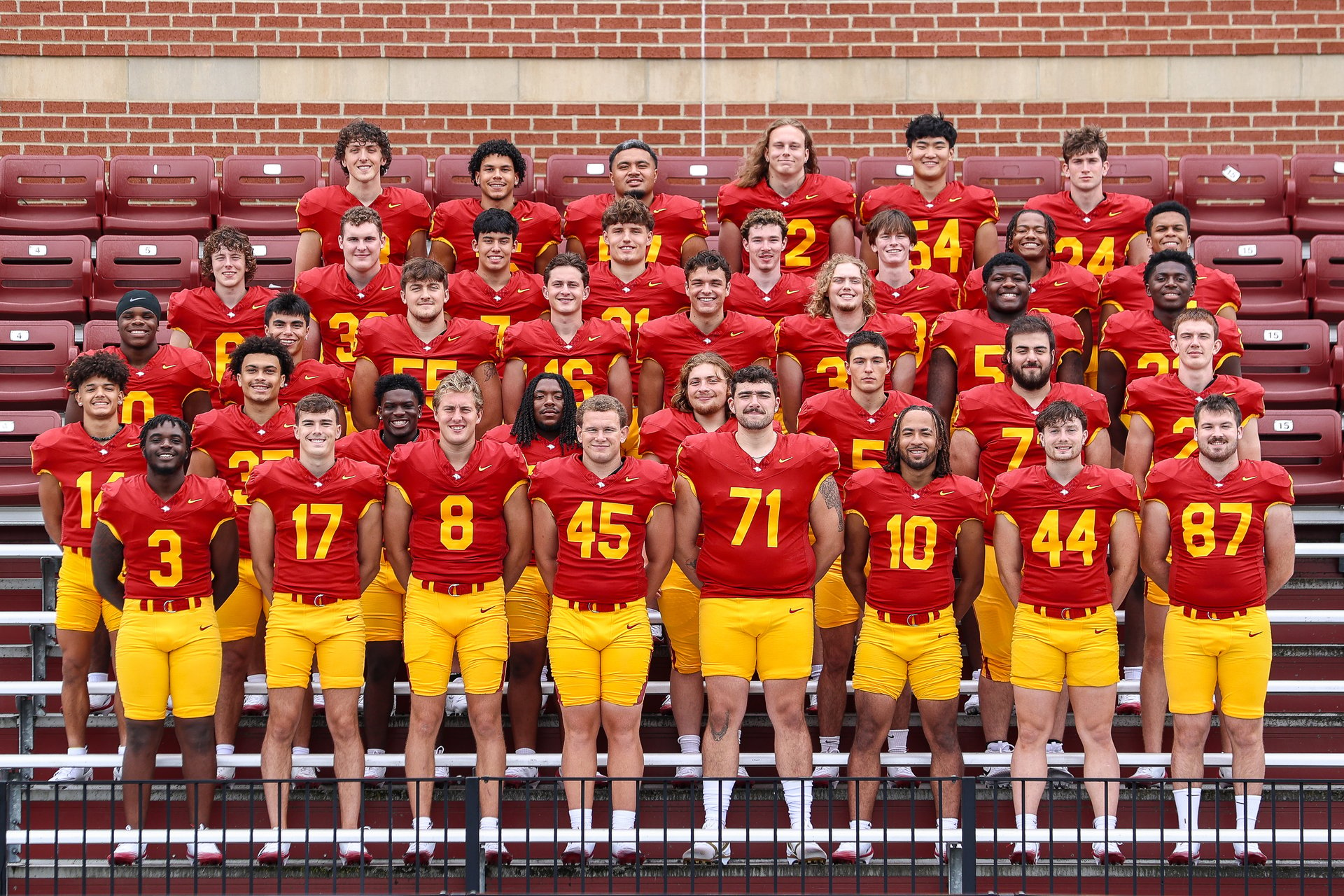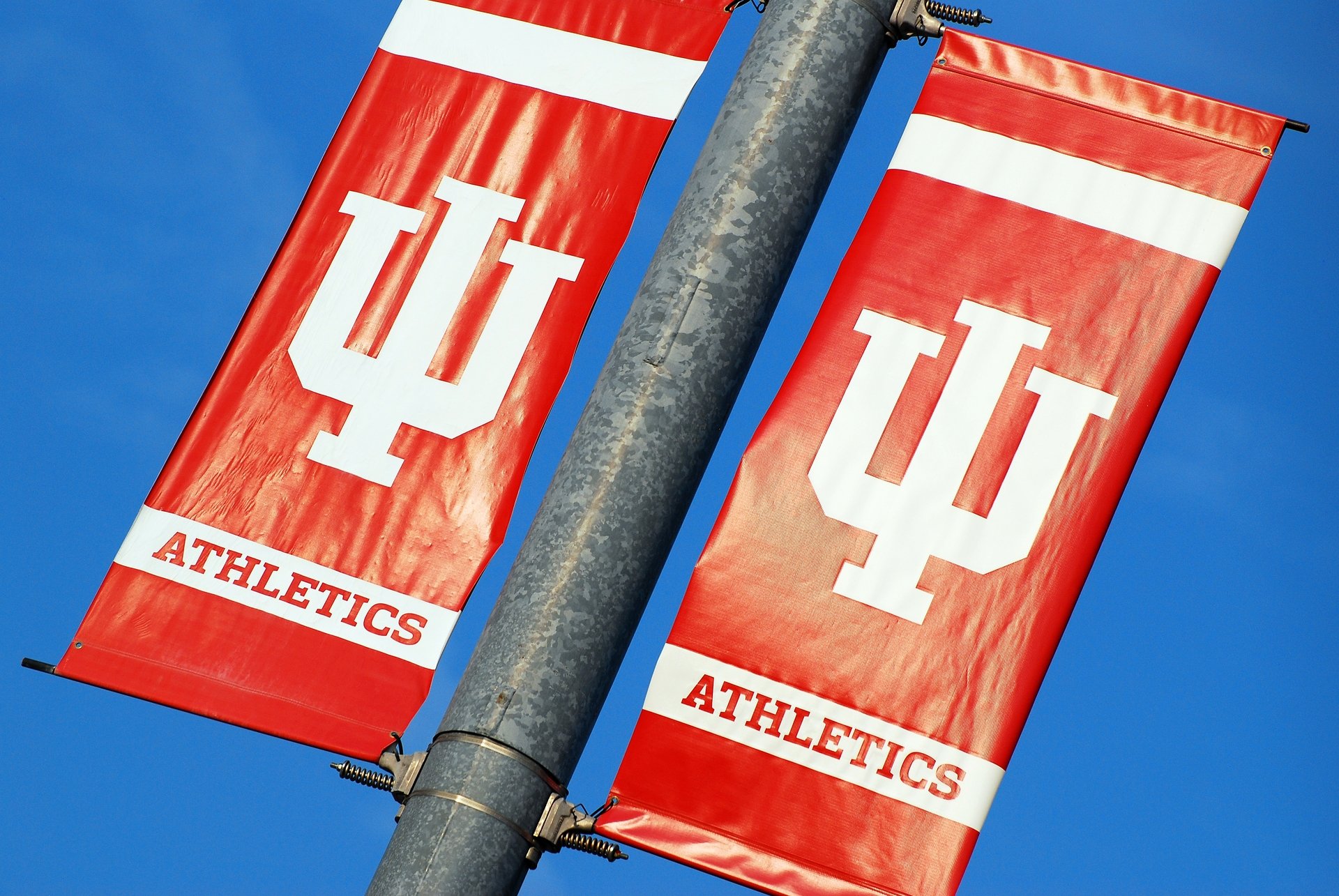Good morning, and thanks for spending part of your day with Extra Points.
Last week, Michigan and Western Michigan both announced that the two programs are “ in ongoing discussions” to open the 2026 football season in Germany (the news was first broken, I believe, by On3’s Brett McMurphy).
The matchup, tentatively, scheduled for August 29 at Deutsche Bank Park in Frankfurt, Hesse, Germany, would be the first international game ever for Michigan, the second (and first outside North America) for Western Michigan, and the first major college game ever played in Germany. Deutsche Bank Park has previously hosted NFL games in 2023.
I understand why the response to this announcement was mixed among many college football fans and observers. The two schools are only about 100 miles apart, which would have made the contest a relatively easy and affordable trip for in-state fans. Instead, it will be played across the entire dang Atlantic Ocean. And unlike other recent college football games played in Europe, like Iowa State-Kansas State, Penn State-UCF, Nebraska-Northwestern or Georgia Tech-Florida State…this matchup is unlikely to be competitive.
Michigan and Western Michigan have played six times since 2000, and Michigan has never won by less than 17 points.
But you know what? I’m not somebody prone to saying nice things about the University of Michigan football program in print, but I actually think this is a very smart move. And if Michigan, the Big Ten, and the league’s broadcast partners are willing to do a little advanced prep work, bets like this could really pay off down the line.
Remember: A Western Michigan game in Germany isn’t for the same kind of fan as a Western Michigan game in Ann Arbor
The early season in-state battle between the massive P4 program and the regional MAC or CUSA school across the state isn’t meant to be a truly premium experience. It’s a chance for folks who can’t afford season tickets or for the secondary market tickets to see Ohio State, Oregon or Penn State to still get an experience in The Big House. It’s a chance for the university to ship a bunch of tickets to middle schools or YMCAs or other charities. It’s not built for the hard-cores.
Those are still very important games. Schools like Michigan can seat more than 100,000 fans in the stadium for every home game, and they’re going to (mostly) fill the place no matter who they’re playing. Even if those tickets are discounted, that’s a lot of people buying parking spaces, soda pop, hot dogs and beer. The Athletic reported that Michigan makes about eight million bucks per home game.
One way you could get more exact information about this sort of thing would be to hop into the Extra Points Library to pull up Michigan’s FY24 FRS Report. That would tell you that Michigan reported $2,596,945 in football revenues from parking, concessions and novelty sales at Football games. That report would also tell you Michigan reported $50,312,640 in football ticket revenue. Divide that number by the seven home games Michigan had in FY24, and you end up with $7,558,512.14 per game. If you want to include some sponsorship revenue as tied up to gameday revenue, it isn’t hard how to get to the eight million the Athletic reported.

These are the type of questions you can answer thanks to the Extra Points Library, which includes hundreds of itemized budgets for D-I and D-II schools, plus thousands of coach, AD, GM and vendor contracts. Get the info you need with Extra Points Library, today.
It’s not easy to find an international athletic event that makes financial sense, because that’s a lot of home gate money to give up. But one of the ways you get the math to pencil out is by focusing on a different customer.
That isn’t the crowd that Michigan is hoping to serve by moving a game to Frankfurt. These international game events are built to cater to a) locals in Germany, b) rich donors who want an excuse to visit Germany and c) corporate partners.
Now, when the University is trying to fundraise for say, athletic facilities, or academic construction or some other university priority, or if they’re trying to nail down a massive corporate partnership, they can also offer a trip to Germany as part of the fundraising pitch. That can be a very effective carrot to the right donor.
There’s a risk to this sort of move. If a program makes decisions that will price out regular fans in favor of a small handful of mega-rich donors, you risk nuking your program’s goodwill among fans. But the risk of permanently turning somebody away from Michigan fandom because one home game a decade gets moved somewhere else…in my professional opinion, is pretty low.
International games are also uniquely valuable broadcast inventory
Last year, I wrote about an unexpected wrinkle with Hawaii’s television rights. For some Hawaii home games, kickoff isn’t until about 11 PM CT, which means that I’m probably sleeping well before halftime, along with millions of other college football fans. But you know who is glued to their screens, no matter what?
Gamblers! That late night TV window is sometimes known as the chase game, and data reviewed by Extra Points showed that gamblers spent way more money on Hawaii games than they did on far more popular (and successful) programs. If you’re the only game on during a particular window, you’re going to attract a captive audience, and that dollars.
It’s not exactly the same thing for a game in Germany, since that contest will likely kick off earlier in the morning for local audiences in the United States. But there’s absolutely broadcast value in being the only college football game on TV during an 8 AM window. Will some casual fans be at little kid soccer practice, or Home Depot, or still sleeping? Sure, probably. But there will be enough other people, especially gamblers, who will make that game a very attractive inventory.
I’m not a gambling guy, but I can read a spreadsheet. This is the sort of thing that I think leagues trying to really grow their broadcast dollars, like the ACC, Big 12 or Pac-12, ought to look at doing on a regular basis.
This is also about planting seeds that won’t grow tomorrow
The NFL isn’t stupid. They understand there are only so many people in the United States who could still potentially be converted into football fandom…but there are millions and millions of people globally who could be persuaded to love the game. The NFL doesn’t spend time and money playing games in places like England, Brazil, Mexico and Germany out of charity or civic obligation…they do it because they think that over time, they can convince consumers in those countries to buy Jacksonville Jaguars stuff and become emotionally invested in the Jaguars. Or whoever.
The value prop for Michigan is slightly different than it is for the Jaguars or Browns, but there’s a lot in common. The University of Michigan, like most other state flagship R1s, really is a global brand. The school recruits students globally, conducts research globally, raises money globally, and seeks to be relevant globally.
Michigan football might not be that global brand yet (although Michigan actually does recruit athletes from Europe, including Germany, like Marlin Klein), but the school is. Using football to advance the brand and mission of the university makes total sense.
But if the NFL is working to make more Germans fans of American Football, there’s no reason why some of those fans can’t also support Michigan, especially if Michigan is one of the only programs that is easily accessible to German fans. Nobody is going to care that Michigan is playing a MAC team that they should be able to beat by 32 points. They’re going to care about the spectacle of American College Football, which is fundamentally different from the NFL.
If you show up first and try a little bit harder, there’s no reason why Michigan can’t cultivate fans all over the world.
But if Michigan wants that to happen, they need to make sure they do two things.
Michigan (and the Big Ten) needs to make sure that German fans, if not all European fans, can actually watch Michigan football
Major European soccer leagues, like the EPL and La Liga, have spent massive amounts of time and energy selling broadcast rights to their leagues all over the world. One way or another, you can watch most of the best soccer leagues all over the world in the United States. There are usually ways to watch the NFL and NBA on linear television in Europe and South America as well, thanks to rebroadcast agreements.
But by and large, my understanding is that this isn’t the case for major college sports. If you have a VPN, sure, you can probably log-in to ESPN+ or Peacock from Berlin or Paris, but without that, you may be left without an option to stream or watch big time college football.
I don’t think it is reasonable to expect Michigan, or anybody could play a game or two in Germany or Ireland and create thousands of dedicated fans just like that. There needs to be an infrastructure to support and attract fans before, during and after the in-person event, and I don’t think that’s possible if German fans can’t actually watch the Wolverines play Oklahoma or Michigan State later that season.
Even if they don’t get much in the way of rights fees, CBS, NBC, FOX and ESPN ought to figure out ways to rebroadcast their college sports inventory overseas ASAP.
Michigan should also find a way to offer something to the people priced out of this game
Big Ten college football tickets are expensive, especially if you were planning on bringing your entire family. If you were a fan that was budgeting specifically for the WMU game in 2026, losing that matchup stinks.
I don’t know if it is possible or practical to offer a complete make-good for this matchup, but I think some sort of gesture from the athletic department that recognizes that this decision does disadvantage some fans would be a good idea. Maybe that means further discounting tickets to that season’s UTEP game, or discounting parking/concessions elsewhere in the season, or finding ways to create other, lower-cost stadium experiences during the season.
In a world where every athletic department needs to dramatically grow revenues (to pay for athlete compensation, potentially offset budget cuts from the university itself, to pay for capital projects, etc), I think most fans will understand that schools may have to do things they wouldn’t have done a decade ago to make sure there’s enough money to pay the players.
That might mean selling ads against things that didn’t used to have ads. It might mean raising prices. It might mean moving games. It might mean other things altogether.
I’m not an athletic director or communications professional, but I assume that being as transparent as possible, while trying to soften the financial blow, will go a long way towards maintaining a good relationship with the fanbase.
If nothing else, Michigan and Western Michigan football players will get to enjoy an experience that nobody else in the country can claim. They’ll be ambassadors for college football, and their schools, on a global stage. They'll get a broadcast window all to themselves.
Personally, I think that’s a trade worth making. I’d support my alma mater deciding to play a game in Europe, Asia or South America. And honestly, I think more and more programs in D-1 ought to at least consider it.

















